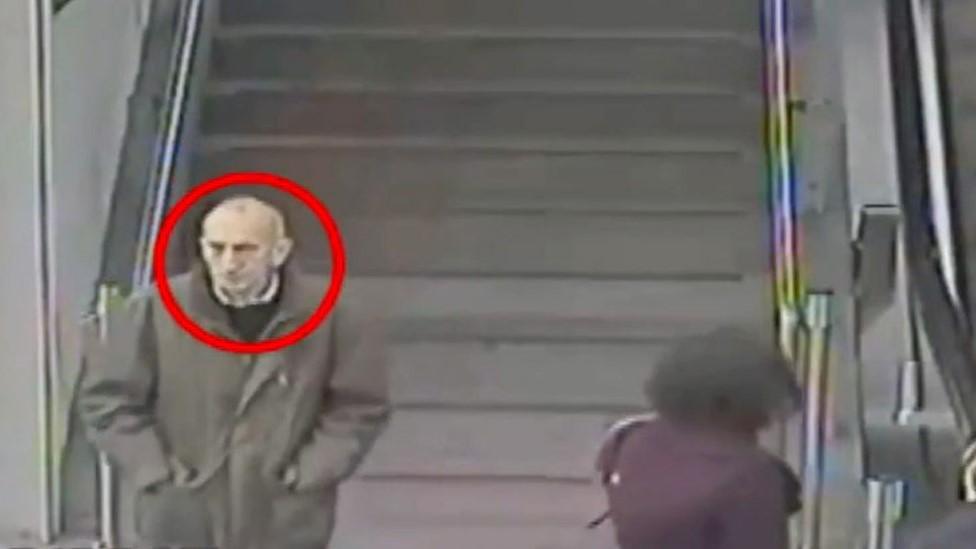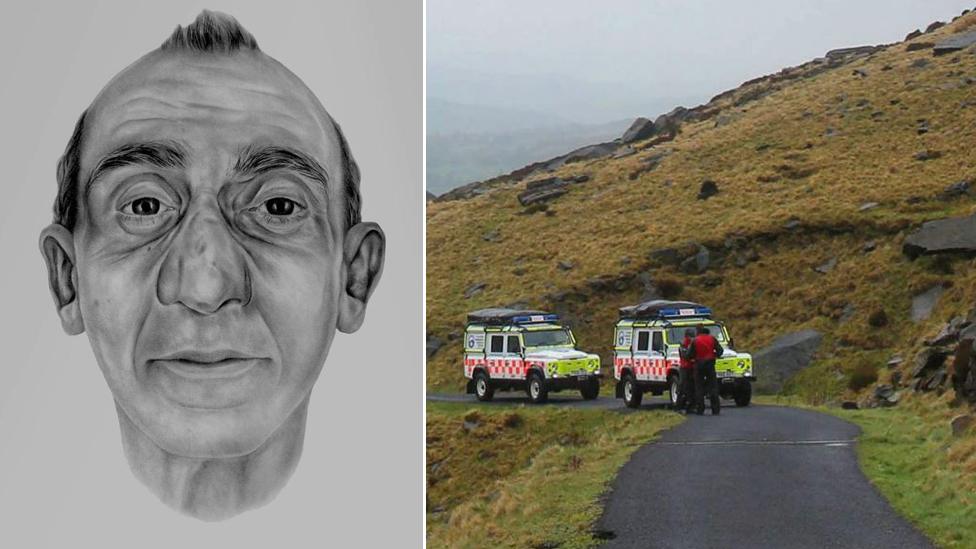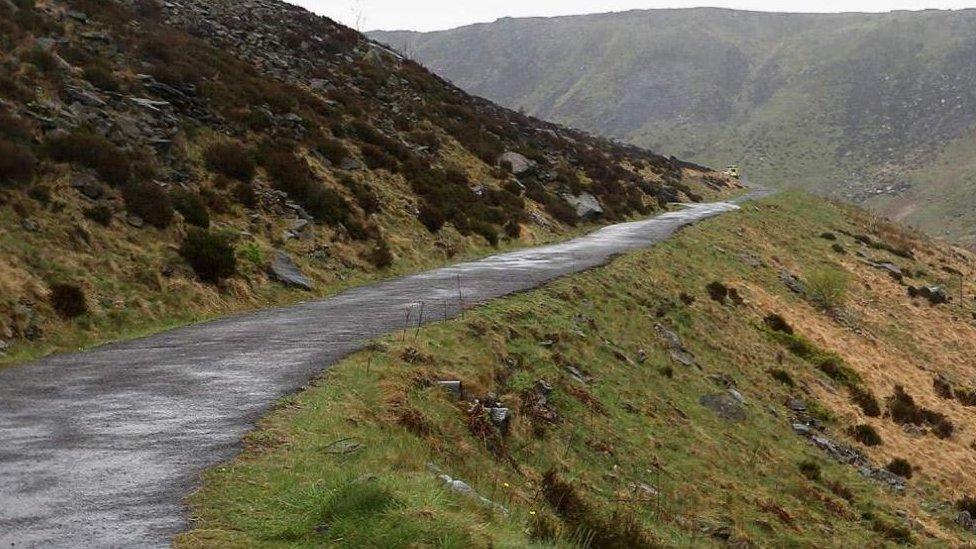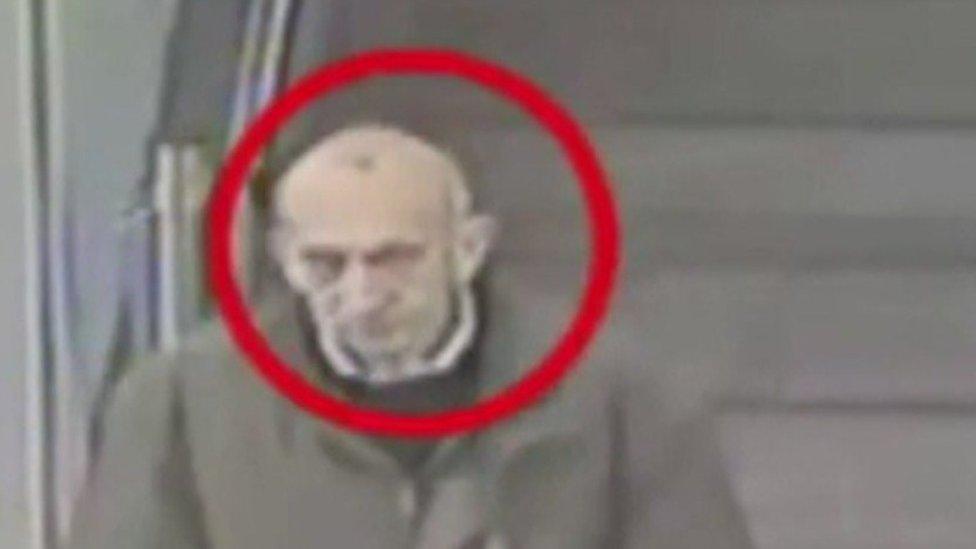Saddleworth Moor mystery man identified
- Published

The attempts to find out who the man was led to an international police investigation
The identity of a man whose death sparked worldwide interest after his body was found on Saddleworth Moor has finally been established.
David Lytton, 67, from London, was discovered at Dove Stone Reservoir on the moor on 12 December 2015.
A court has heard he flew into London Heathrow from Lahore, Pakistan, two days before his body was found. He was identified from photos from a passenger list and picked up on CCTV in London.
Police believe he took his own life.
Heywood Coroner's Court heard Mr Lytton was discovered fully clothed and lying prone on the ground above the reservoir in Greater Manchester.
Mr Lytton, who had lived in Pakistan for 10 years, had no wallet, mobile phone or other identification and remained unidentified despite numerous public appeals and the release of CCTV footage of his last known movements.
Police said a "provisional" cause of death had been determined as "strychnine poisoning". The toxin is now used primarily as a pesticide, particularly to kill rats.
Strychnine, while regulated in the UK, is "widely used" in Pakistan, detectives said.

Body on the Moor

In June 2016, the BBC investigated the mystery of the unidentified body
Why did this man travel 200 miles to die on Saddleworth Moor?

The inquest was told that extensive police inquiries led to detectives concentrating on flight data from Pakistan to London.
This uncovered the fact that Mr Lytton travelled from Lahore to London Heathrow on 10 December and appeared to have no return travel arrangements.
He travelled on the train to Manchester Piccadilly and police believe he may have then taken a taxi to Dove Stone reservoir but are yet to identify a driver or company.
Greater Manchester Police (GMP) told the BBC his identity was confirmed as a result of a DNA match with a relative. His family has been informed.
Police said Mr Lytton "was a bit of a loner" and "he liked his own company".
Det Sgt John Coleman said: "He appeared to like to compartmentalise his life. Friends would not know other friends. He kept people separate."

His body was discovered at Dove Stone Reservoir in Saddleworth Moor in December 2015
The investigation had been "unlike anything I have ever known" in 20 years as a police officer, Det Sgt Coleman added.
He said: "We are pleased that we are finally able to update Mr Lytton's family and provide some answers to the questions which have been asked from the start.
"Although possibly the biggest question still remains, which is why a man with no obvious connection to Saddleworth chose to head there after returning from Pakistan."
An international police investigation was launched in a bid to identify the body, nicknamed Neil Dovestones by mortuary workers at Royal Oldham Hospital.
A post-mortem examination had revealed Mr Lytton had a type of titanium plate in his leg which was only manufactured and fitted in Pakistan.
Greater Manchester Police and the National Crime Agency contacted the medical community and the British Embassy in Pakistan to appeal for information.
As mystery surrounding the case intensified, a number of theories were discounted.
There was speculation the man could have been making a final journey to the site of a plane crash in 1949 which killed his family, while a man from Northern Ireland contacted police to say he could be missing Hugh Toner, from Newry, who disappeared in 1994.
A year after the body was found it was revealed that a man with a "striking resemblance" to the artist's impression of Neil Dovestones had travelled from Lahore to Heathrow, police said.
DNA analysis confirmed that Neil was David Lytton who had been living in Pakistan for 10 years before returning to the UK and heading to Dove Stones Reservoir "for reasons which still remain a mystery".
A full inquest will take place on 14 March.
- Published14 March 2016

- Published27 January 2016
